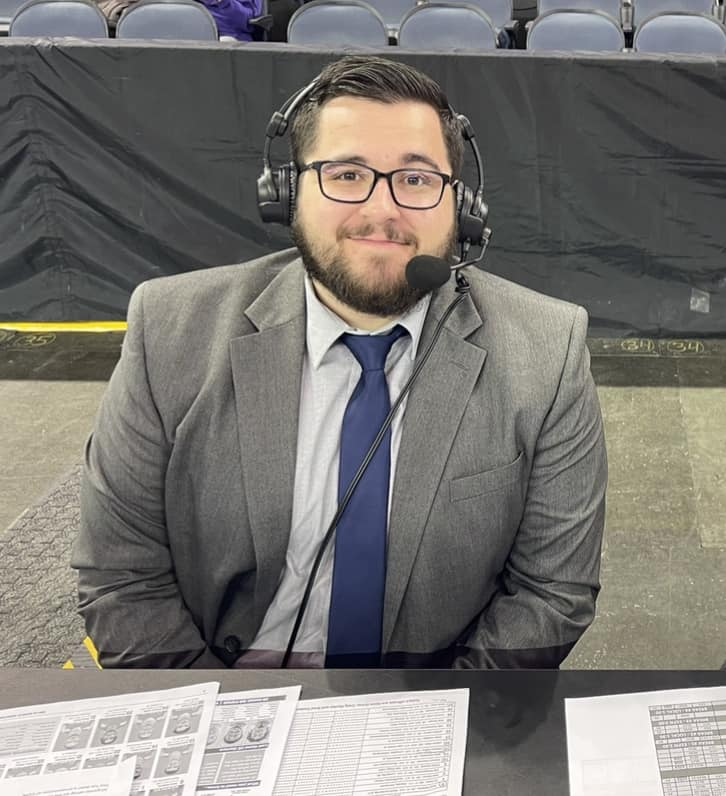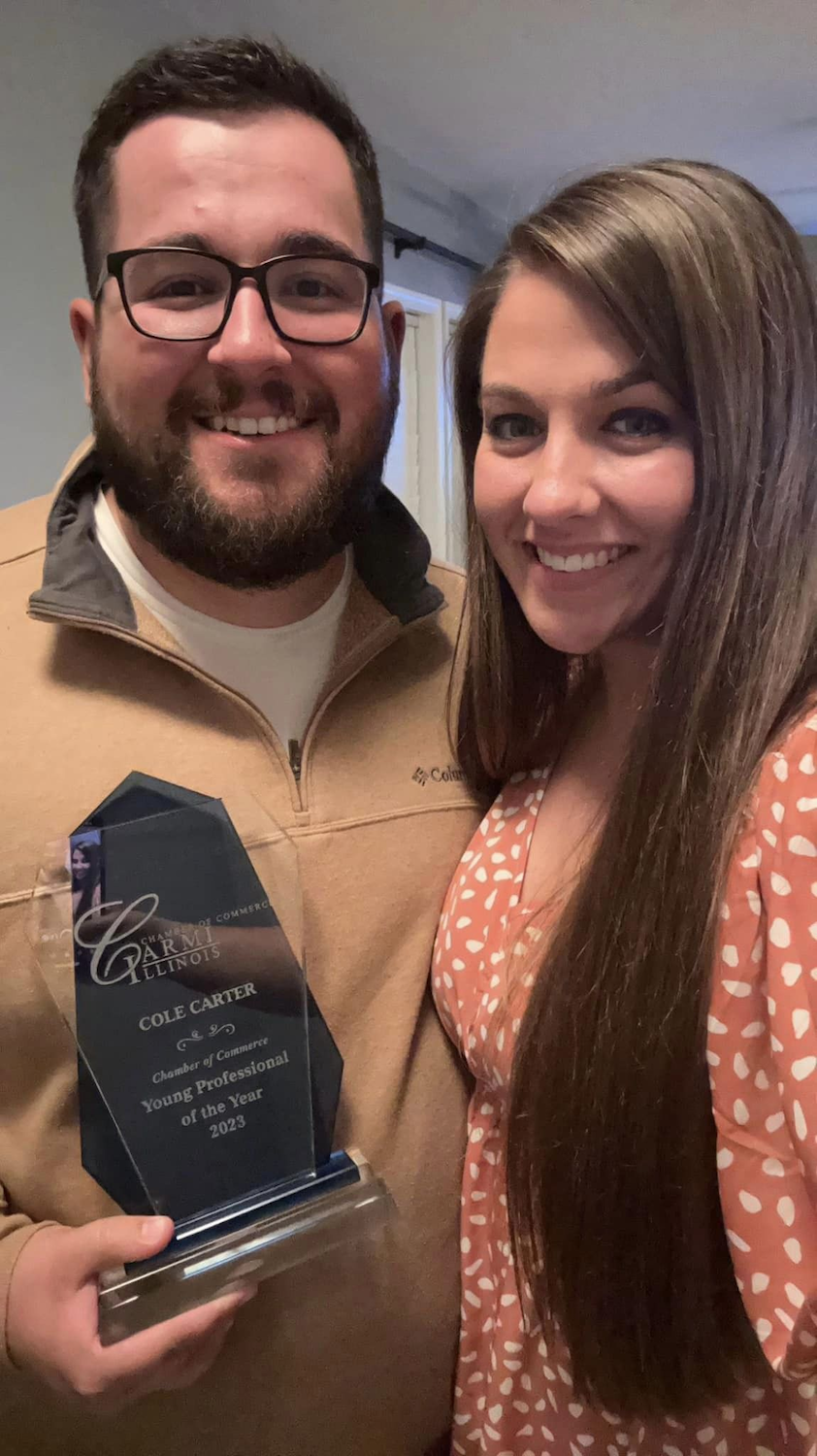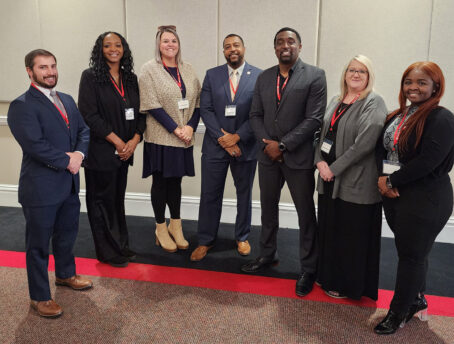Often, people who grew up in small towns and the countryside can’t imagine living and working in an urban area. Being accustomed to the rural way of life and its many advantages is not just familiar, but foundational for many who grew up in rural areas. Today, a significant proportion of young people are choosing to return home to their rural communities to start their careers, and rural schools are often an exciting re-entry point.
Cole Carter is a first-year teacher at Gallatin County High School in Junction, IL, who did just that. Cole was born and raised in Carmi, IL, about 25 miles from Junction, and he commutes to his school every day from his hometown. He described how he discovered his interest in teaching:
“I graduated from the University of Southern Indiana with a degree in Radio & Television. After graduation, I realized that I wanted to go back to school and pursue a degree in education. I spent the 2022-2023 school year substitute teaching in the Carmi-White County school district before landing my job at Gallatin County this school year.”
Cole is not only involved in his community as a teacher, but has other unique connections to his hometown community:
“I am definitely very involved in my community. I have worked at the local radio station in my hometown since 2019. In 2021, I became the sports director, specializing in sports coverage for our hometown high school, Carmi-White County. I take pride in being able to provide coverage for our basketball, football, volleyball and baseball/softball teams for our hard-working student athletes.”

While deficit-based narratives can be thrust upon rural schools, Cole sees many advantages that support his ability to effectively educate students in his community.
“I wouldn’t necessarily say there are any challenges to teaching in a rural place. I prefer to teach in a small school compared to a larger school in a big city. Our school is a K-12 county school which includes kids from nearby towns, all with populations less than 1,000. Our school enrollment is approximately 220, which is on the smaller half of high schools - but very similar to other schools in our area.”
“I generally like the size of classes that I have; they vary from big to small. For my smaller classes, it is easier to get the whole group to participate in games, exercises, and activities. For the bigger classes, it often feels like I’m controlling a herd rather than teaching a class. For the bigger classes, I give them multiple options of things to do to make sure they are still engaged.”
He shared that seeing students understand a lesson is one of his favorite memories thus far as a teacher, citing one specific example:
“Recently in our health class, we discussed the dangers and risks of drinking alcohol as well as the use of tobacco and nicotine. As we worked our way through the lesson, I could tell the students were understanding the meaning behind the lesson. As teenagers, they are bound to cross paths with drugs and alcohol. I know that lesson helped guide them in the right direction.”
A smaller student population allows Cole to not only connect with his students, but engage with their families as well:
“About once a month, our principal asks us to send positive emails home to parents. I feel it is a great way to keep parents up to date on the good things their kids are doing at school. Oftentimes when parents get contacted by the school, it is for a negative reason, but when we reach out for a positive reason it really shines a light on the great things that the students are doing that might otherwise get overlooked.”
He also talked about how, due to its central location, the school brings together community members:
“Gallatin County K-12 school geographically sits in the middle of our three main communities: Ridgeway, Shawneetown, and Junction. All three towns are very small, so the school is often looked at as the main attraction for students and parents. Many parents and former alumni attend sporting events, concerts, plays, etc. at the school - even if they don’t have a student or family member participating.”
While Cole loves being from a small town, he does admit that the teaching profession itself comes with some challenges:

“I love my job, and I love working with students on a daily basis. When I was in school, I loved building relationships with my teachers and I loved the fun activities that come with being in high school - homecoming, sporting events, assemblies, pep rallies, etc. Right now, it seems like kids simply don’t care about those things. It is our job as teachers to educate them, while helping them find that motivation at the same time.”
Still, Cole reiterated that he loves his rural life and community, and wouldn’t trade them for anything else:
“To me, being rural means being a part of a small community. I’ve lived in a small town my whole life, and although I have visited big cities and lived in a metropolitan area while I was in college, there is nothing quite like a small town. The connection, familiarity, trust, loyalty and love for one another is what makes a rural community so special.”
We are grateful to Cole for sharing his time with us to speak about his experiences as a rural teacher in southern Illinois. If you would like to share your story - or nominate an outstanding rural educator you know - contact us today.




